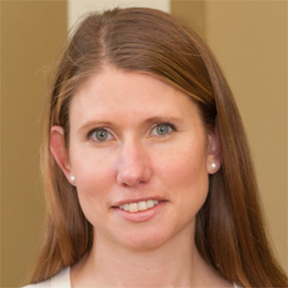Date: January 8
Time: 9:45 – 11:15 a.m.
Location: Rodney Room, Perkins Student Center
Description: What are some models of peer and near-peer learning in PBL classrooms? How does PBL extend opportunities for various mentoring relationships? Can peer facilitators help manage PBL in large classes? How can we train and support peer tutors in PBL classrooms? Can faculty mentor other faculty in approaches to PBL?
Catherine Grimes, Chemistry & Biochemistry
Dr. Catherine Leimkuhler Grimes is an assistant professor in Department of Chemistry and Biochemistry at the University of Delaware. Prior to her time at UD, she assisted in the design and implementation of an introduction life science class and laboratory at Harvard University. Her research laboratory at UD focuses on using tools from chemical biology to understand how the human body interacts with bacteria (both commensal and pathogenic). She has uses these topics as inspiration for a Problem Based Learning (PBL) Biochemistry class that she developed at UD under the mentorship of her award winning colleague, Professor Hal White. She is a Pew Biomedical Scholar and more recently the Research Corporation named her as Cottrell Scholar for which she will receive funding for development of a PBL bio-organic laboratory for sophomore biochemistry majors.
Hal White, Chemistry & Biochemistry
Hal White joined the University of Delaware Department of Chemistry and Biochemistry in 1971. Between 1994 and 1998, he served as Principal Investigator on the first NSF/DUE grant on Problem-Based Learning (PBL) to the University of Delaware and was involved with subsequent NSF, FIPSE, and Pew Charitable Trusts grants for PBL. Currently he is an associate editor for Biochemistry and Molecular Biology Education where he writes commentaries on PBL. Hal has received numerous teaching awards including the 2011 Howard Barrows award for exceptional teaching from McMaster University, the 2013 CASE-Carnegie Foundation Delaware Professor of the Year, and the 2014 American Society for Biochemistry and Molecular Biology’s Award for Exemplary Contributions to Education.


